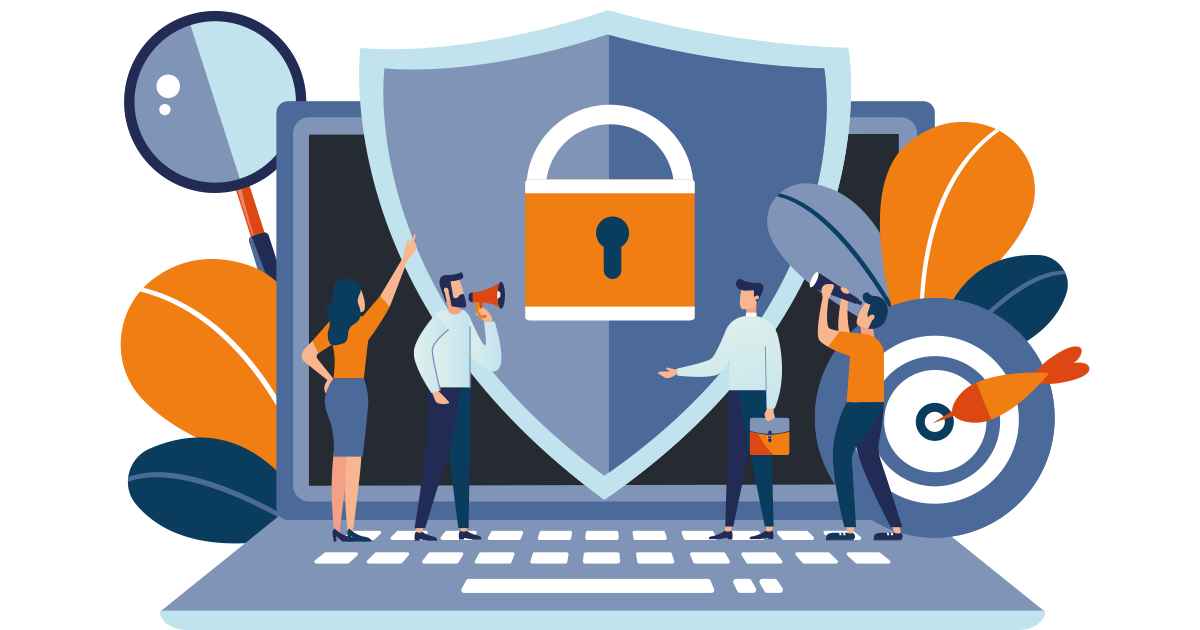Cyber criminals and other malicious individuals have also picked up on the popularity of virtual events and have begun to exploit them as a method to breach the security of event participants. In fact, the FBI reported that cybercrime reports have almost quadrupled since the start of the COVID-19 pandemic.
For this reason, it’s important to be aware of these risks and consider the cybersecurity measures you’re taking when organizing virtual events.
Here are four tips to keep in mind as you organize your upcoming virtual events:
Communicate cyber safety best practices prior to the event
Studies have found that approximately 90% of data breaches occur due to human error, so it’s important to communicate cyber safety best practices to the event’s hosts and attendees well in advance of the event. This helps to ensure everyone has an adequate amount of time to look into their security practices and make any necessary adjustments before the event occurs.
One of the best ways to communicate best practices is through a brief, but informative email that will educate the readers and also encourage them to incorporate these measures.
One important precaution to include is to use a private WiFi network, rather than a public one. Public WiFi networks, which don’t require a password to utilize them, make it easier for hackers to position themselves between the user and the access point. A private WiFi network adds an additional security layer that makes it more difficult for hackers to enter.
It’s also important to encourage participants to download and be up to date on antivirus software and/or firewalls. Antivirus software is a program or set of programs that are designed to prevent, search for, detect, and remove software viruses and other malicious software. Firewalls can help protect a user’s network by filtering traffic and blocking outsiders from gaining unauthorized access to the private data on their computers.
Ensure the organization has proper cybersecurity measures in place
Organizations that you’re coordinating with to host the event can also play an important role in cyber safety. This can be achieved a number of ways. For example, organizations should always be sure that the softwares and systems they use internally are updated. Deploying updates fixes security vulnerabilities through a “patch,” which is a small piece of software that improves systems, keeps them up to date, and fixes security vulnerabilities to keep hackers and malware at bay. When vulnerabilities go unpatched, or unresolved, businesses are left susceptible to cyber attacks or breaches.
Another way organizations can play a role in security is by ensuring that they have strong network security. In short, network security focuses on the protection, detection, and reaction as it relates to company security. This includes protecting and securing external network access, which can help secure devices regardless of location. This is especially important for virtual events, which likely have participants logging in from all over the country or even the globe.
Network security methods include access control (where the administrator can block unauthorized users and devices from accessing your network), mobile device and wireless security, as well as data loss prevention. Organizations hosting the event should have a secure network solution in place, which will help to ensure event security on all fronts.
Regulate event access
One of the first rules of thumb for virtual events is knowing exactly who is participating. Just like you would for an in-person event, it’s important to understand how many people will be attending, who those people are, and also prevent the attendance of unwanted or out-of-place attendees.
In your event planning, be sure to require registration for the event. Many Zoom users have experienced “Zoom bombing” in recent months, where random, unwarranted meeting attendees hijack calls to mess with or disrupt its participants. Regulating access to the event will help to mitigate this type of risk.
Whether you opt to utilize an electronic sign-up service, registration platform, or simply gather interest via email, making pre-registration necessary will help to control who is able to attend the event and will limit the chance of hijacked events. In addition, only share the online event link once an attendee is registered. Do not create public events and share the web link across social media channels, advertisements, or other publicity channels, as this can often encourage unsolicited and malicious participation.
Once the event has begun, lock the event at a specific and clearly-stated time to restrict unwarranted access—and be sure to do a quick scan through the participants currently in the meeting to make sure that only those who should be in the meeting are those who are present.
Monitor activity during the course of the event
Using the above tips should help to prevent any sort of safety concerns throughout the course of your virtual event, but regardless, virtual events will also require continuous monitoring throughout the course of the event to ensure safety has not been compromised. Be sure to keep an eye out for any suspicious, unwarranted, or just “out of place” activity.






.png)
.png)
.png)